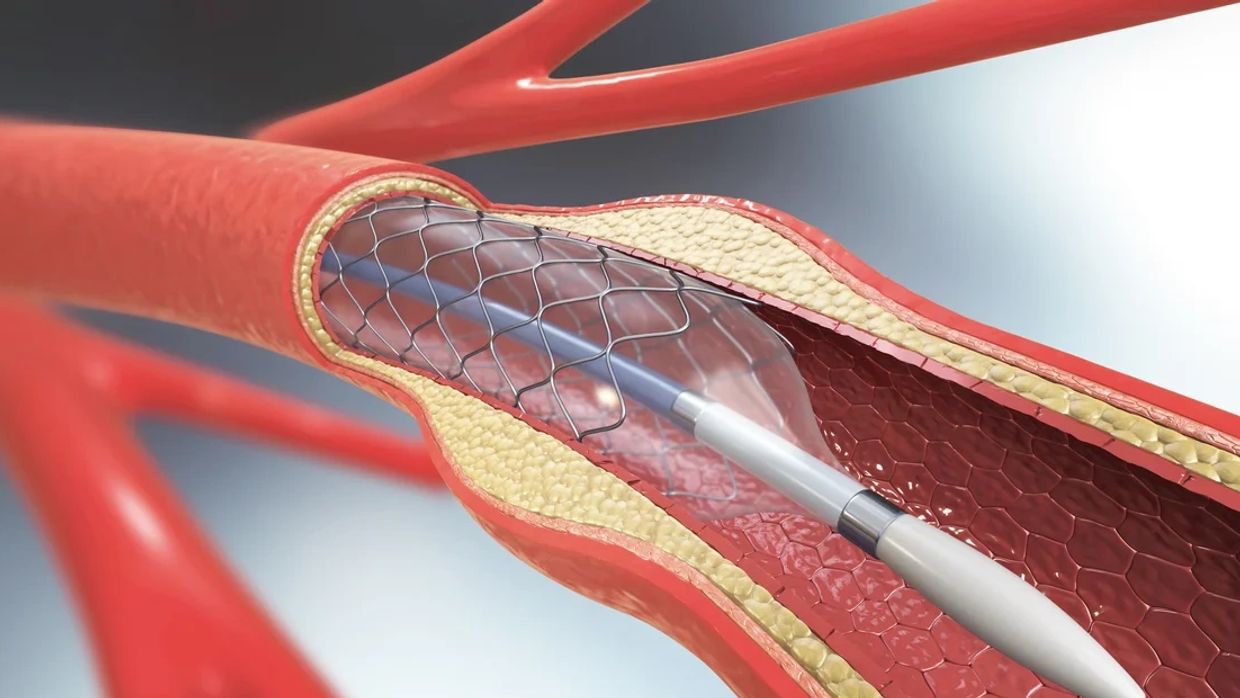Signed in as:
filler@godaddy.com
Signed in as:
filler@godaddy.com
Carotid artery disease is a serious condition where the carotid arteries, the main blood vessels that supply blood to the brain, become narrowed or blocked due to atherosclerosis (the buildup of plaque). If left untreated, this condition can lead to stroke, one of the leading causes of death and long-term disability. Recognizing the significance of timely and effective treatment is crucial. At Cortex, we're committed to providing state-of-the-art care, offering several treatment options tailored to each patient's condition and needs.

Carotid artery disease often develops silently and progressively. It may not present symptoms until significant narrowing or a blockage occurs, potentially leading to transient ischemic attacks (TIAs) or a stroke. Symptoms may include sudden numbness or weakness, particularly on one side of the body, confusion, trouble speaking, vision problems, dizziness, or severe headache.
Cortex Neurovascular offers three primary treatment options for carotid disease: Carotid Artery Stenting (CAS), TransCarotid Artery Revascularization (TCAR), and Carotid Artery Endarterectomy (CEA).
Carotid artery stenting is the least invasive treatment option. This procedure involves inserting a catheter through a small incision in the groin or wrist and navigating it to the affected area of the carotid artery. A balloon is then inflated to open the narrowed section, and a stent, a small metal mesh tube, is deployed to keep the artery open. CAS is particularly advantageous for patients considered high risk for surgical procedures due to age, medical history, or other conditions.
TCAR is a lower invasive technique. The procedure involves a small incision just above the collarbone, through which a stent is placed directly into the carotid artery while temporarily reversing blood flow to prevent plaque debris from reaching the brain. TCAR offers a lower risk of complications compared to Carotid Endarterectomy.
Carotid endarterectomy is a surgical procedure that has been the standard treatment for decades. It involves making an incision in the neck to access the affected carotid artery, opening it, and removing the plaque causing the blockage. The artery is then repaired, often with a patch, to widen it and restore normal blood flow. CEA is highly effective, particularly for patients with significant narrowing (70% or more) and can significantly reduce the risk of stroke.

Deciding on the best treatment involves considering several factors, including the severity of artery narrowing, patient’s overall health, risk factors for surgery, and potential benefits and risks of each procedure. While carotid artery stenting is increasingly favored for its minimally invasive nature and quicker recovery times, it's essential to have a personalized consultation to determine the most suitable option.
At Cortex, our multidisciplinary team of experts closely evaluates each case to recommend the most appropriate treatment plan. Our priority is to ensure that patients receive the highest standard of care, with a focus on minimizing stroke risk and promoting a healthy, active life post-treatment.
We understand the complexity and concerns surrounding carotid artery disease and its treatments. Our team is here to guide you through each step, from diagnosis to recovery, ensuring you're informed, comfortable, and confident in your care plan. With cutting-edge treatments like carotid artery stenting, TCAR, and traditional endarterectomy, we're dedicated to providing personalized, top-tier vascular care.
If you or a loved one is dealing with carotid artery disease, reach out to Cortex to explore your treatment options and take the first step towards effective management and prevention of stroke.
If you have any questions or would like to schedule an appointment, please feel free to contact us. Our friendly staff is here to help you with any questions or concerns you may have.